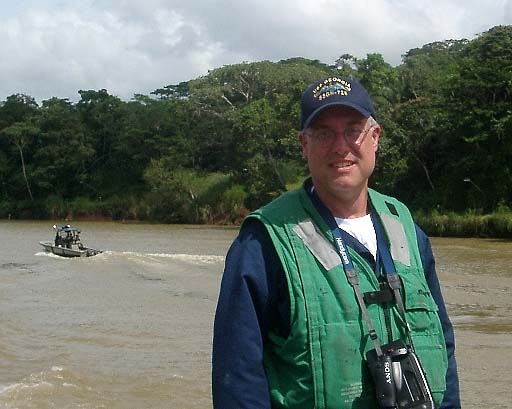Prague, 1 April 2005 (RFE/RL) -- The report, entitled "The Worst of the Worst: The World's Most Repressive Societies 2005," notes that six of the 18 most repressive governments are members of the UN's human rights commission.Of course the UN (which is worse than useless) flatly denies that they have anything but the highest standards in the protection of human rights worldwide.
Those are China, Cuba, Eritrea, Saudi Arabia, Sudan, and Zimbabwe.
Michael Goldfarb is a senior press officer with Freedom House. He told RFE/RL that these governments have subverted the commission's mandate.
"Countries with truly egregious human rights records managed to get themselves elected to the only United Nations human rights monitoring body," Goldfarb said. "Successfully, they work together in concert to prevent [condemnatory] resolutions passed against them. They prevent the open, legitimate and transparent debate about human rights abuses that are occurring throughout the world."
On 21 March UN Secretary-General Kofi Annan recommended that states elected to a reformed "Human Rights Council" be chosen based on their compliance with the "highest human rights standards:"He can hope, but the UN is far too corrupt to allow it. Well over two-thirds of the membership is made up of just such regimes. The very large percentage of the membership that is Arab and/or Muslim will not tolerate anything that does not condemn Israel for imagined crimes that they themselves really do commit every day.
"I think if we are able to transform that into a council with members elected directly by a General Assembly two-thirds majority -- with an understanding that those elected must have credentials in the human rights area and commitment to be able to hold up human rights standards -- we are likely to do better," Annan said.
The Freedom House report also includes detailed summations of the human rights situations in Belarus, Turkmenistan, and Uzbekistan. Goldfarb explained: "We saw rigged elections in Belarus recently. You have very, very high restrictions of political rights and banned political parties in Uzbekistan. In Turkmenistan there's essentially no rights. It's really the most repressive Central Asian republic. [emphasis mine - ed.] So you have these commonalities on severe restrictions on political rights in these states."Read the Freedom House Press Release, WORLD'S WORST REGIMES UNVEILED
The report says Belarusian President Alyaksandr Lukashenka further consolidated his "personal dictatorship" in 2004. It notes that the recent elections and a parallel national referendum that lifted a two-term restriction on the presidency saw voter irregularities, tight control of mass media, and "intense pressure" on opposition and civic activists.
On Turkmenistan, the document says the government of President Saparmurat Niyazov continued its campaign in 2004 against real and perceived opponents of the regime.
Several of the World's Greatest Human Rights Violators Sit on UN Human Rights Panel
The report, "The Worst of the Worst: The World's Most Repressive Societies 2005," includes detailed summations of the dire human rights situations in Belarus, Burma (Myanmar), China, Cuba, Equatorial Guinea, Eritrea, Haiti, Laos, Libya, North Korea, Saudi Arabia, Somalia, Sudan, Syria, Turkmenistan, Uzbekistan, Vietnam, and Zimbabwe. Chechnya, Tibet, and Western Sahara are included as territories under Russian, Chinese, and Moroccan jurisdictions respectively.Read the report here, THE WORST OF THE WORST, THE WORLD’S MOST REPRESSIVE SOCIETIES, 2005. A Special Report to the 61st Session of the United Nations Commission on Human Rights Geneva, 2005
The report is available online.
Significantly, six of the eighteen most repressive governments--those of China, Cuba, Eritrea, Saudi Arabia, Sudan, and Zimbabwe--are members of the Commission on Human Rights (CHR), representing nearly 11 percent of the 53-member body.
"Repressive governments enjoying CHR membership work in concert and have successfully subverted the Commission's mandate," said Freedom House Executive Director Jennifer Windsor. "Rather than serving as the proper international forum for identifying and publicly censuring the world's most egregious human rights violators, the CHR instead protects abusers, enabling them to sit in judgment of democratic states that honor and respect the rule of law," she said.






No comments:
Post a Comment